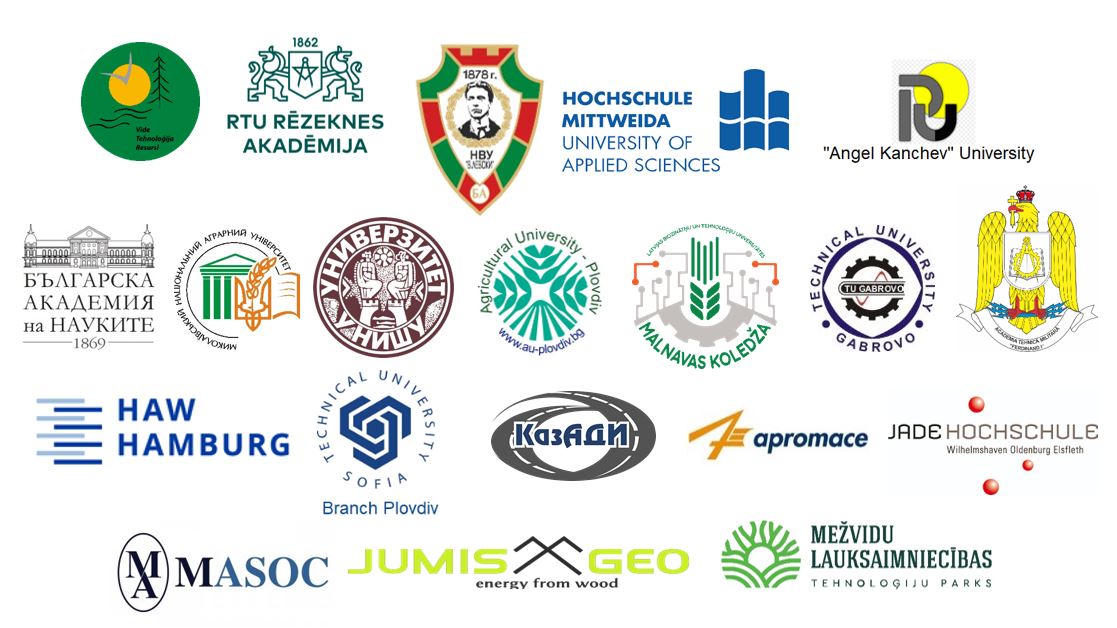ANALYSIS AND COUNTERMEASURE OF VOCS SOURCE IN AUTOMOBILE PRODUCTION PROCESS IN CHINA
##manager.scheduler.building##: Atbrivosanas aleja 115, k-4 (Faculty of Engineering)
##manager.scheduler.room##: Room 013
Last modified: 01.06.2017
Abstract
This article describes the hazards and causes of VOCs as well as the state of VOCs. It is the main culprit in the production of VOCs, which is the main culprit of the production of VOCs source materials in automobile, and analyzes the production of VOCs in the raw material production process from the source. Finally, proposed reduction measures from three aspects of the raw materials, production, management.
Keywords
References
[1] Wang H.L., Zhang G.N., Nie L., et al. Control and management of industrial VOCs in China. Environmental Science 32. 2011, pp. 3462-3468. (in Chinese)
[2] Hunter P, Oyama S T. Control of volatile organic compound emissions: conventional and emerging. New York: John Wiley & Sons, Inc., 2000.
[3] Song Y., et al. Characteristics of Fine Particles in Beijing. Environmental Science 2002 , pp. 11-16. (in Chinese)
[4] Shi Y.Z. Simulation of Photochemical Smog in Suburbs of Beijing City. Journal of climate and environmental research 2008, pp. 84-92. (in Chinese)
[5] Zhang C.N., Ye D.Q., Wu J.L. Adsorption and Catalytic Purification Technology of Advanced and Practical Volatile Organic Waste Gas. Energy Environmental Protection 2005, pp. 5-8. (in Chinese)
[6] Zhou J,You Y, Bai Z P, et al. Health risk assessment of personal inhalation exposure to volatile organic compounds in Tianjin, China. Science of the Total Environment 409.2011, pp. 452-459.
[7] Shirasu M, Touhara K. The scent of disease: volatile organic compounds of the human body related to disease and disorder.The Journal of Biochemistry, 150. 2011, pp. 257-266.
[8] Rudnicka J,Kowal kowski T,Ligor T,et al. Determination of volatile organic compounds as biomarkers of lung cancer by SPME-GC-TOF / MS and chemometrics. Journal of Chromatography B: Biomedical Sciences and Applications 879. 2011,pp. 3360-3366.
[9] Ning M., Sun Y.M.Thanks and Approaches to the Prevention and Control of Volatile Organic Compounds in the 13th Five-Year Plan. World Environment 2016, pp. 27-29. (in Chinese)
[10] Anonymous. About the cutting action plan for key industries volatile organic compounds (2016-2018) interpretation of the. Chinese tyres resources comprehensive utilization 2016, pp. 23-24. (in Chinese)
[11] Zhang W.Y., Hou S.Z. Development and Application of Automotive Coatings. Modern Coatings and Coatings 16. 2013, pp. 23-25. (in Chinese)
[12] Chen Y., Ye D.Q., Liu X.Z., et al.Study on source tracking and industry characteristics of VOC emission from industrial sources in China . China Environmental Science 32. 2012, pp. 48-55. (in Chinese)
[13] Liu H., Hu W.Q. Production and application of iron white powder. Science and Technology Press, 1992. (in Chinese)
[14] Lin H. Synthesis and Technology of Acrylic Resin in Clean Production of UV Coatings. Hunan University, 2007. (in Chinese)
[15] Zeng P.Y., Li J.J., Liao D.Q., et al. Emission characteristics and safety evaluation of VOCs in the production of automotive coatings // The 16th National Symposium on Environmental Microbiology. 2013, pp. 4592-459. (in Chinese)
[16] Shen F., Chen Y., Wu S.Z. Introduction of Automotive Adhesive and Sealant // 2004 Beijing International Adhesive Technology Seminar. pp. 608-617. (in Chinese)
[17] Zhang Y.M., Zha L., Fang J.L., et al. Determination of Volatile Organic Compounds in Tobacco Adhesives by Headspace-Gas Chromatography. Fine Chemical Industry 29. 2012, pp. 717-720. (in Chinese)
[18] Xu S.Y., Jin Y.M., LI L., et al. Effects of vehicle adhesives on air quality in the vehicle. China Adhesives 2013 pp. 14-17. (in Chinese)
[19] An S.X. Analysis of automotive plastic materials application and development trend. Urban construction theory: electronic version, 2013, pp. 132-133. (in Chinese)
[20] Liu J.C., Cao D., Li J., et al. Application of Plastic Composites in Automobile Lightweight. Modern Parts and Components, 2013, pp. 39-42. (in Chinese)
[21] Yang T. Application and prospect of plastic material application in automobile industry. New Materials for Chemical Industry, 2013, pp. 1-4. (in Chinese)
[22] Cao J.Y. Application of plastic material in automobile interior and exterior decoration. Heilongjiang Science and Technology, 2016, pp. 13.(in Chinese)
[23] Yang Z.M. Automotive waste plastics and its recycling / / National Plastics modification and alloy industry technology exchange annual meeting. 2006. (in Chinese)
[24] Huang J.B., Li J.J., Yang B., et al. Preparation of Low TVOC Polypropylene Materials for Vehicles. Plastics Industry 39. 2011, pp. 113-115. (in Chinese)
[25] Cui W., Tao R., Li R.H. Study on Volatile Gas Produced by Polypropylene by Solid Phase Microextraction and Chromatography-Mass Spectrometry. Plastics 39. 2010, pp. 139-141. (in Chinese)
[26] Zeng W.Y. Source and purification technology of organic waste gas in heavy polluting industry. Zhejiang University, 2014. (in Chinese)
[27] Fang M.Q., Huang Y., Liu Z.Z., et al. Ozone Oxidation Chemical Absorption Research Safety and Environmental Engineering 17. 2010, pp. 23-25. (in Chinese)
[28] Zhang Z.L. Emission coefficient of organic waste gas in the production of rubber products. Rubber Industry 53. 2006, pp. 682-683. (in Chinese)

